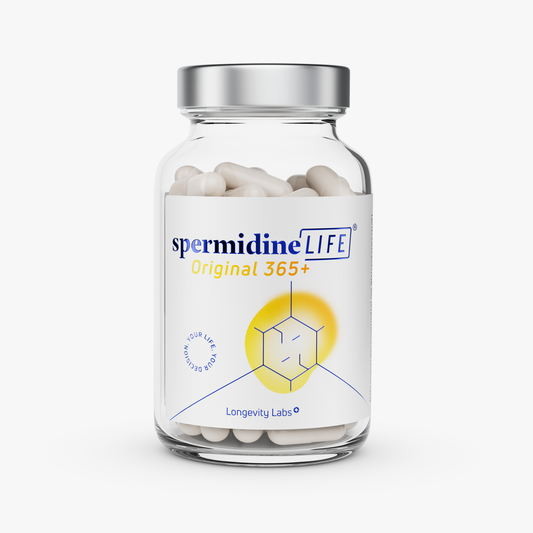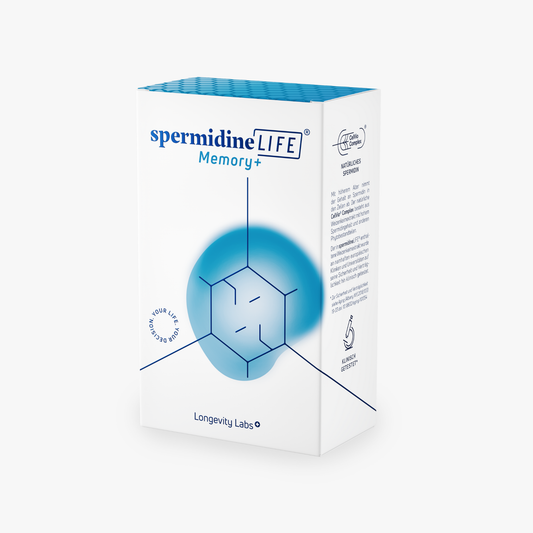
When sleep does not want to come
TLL LongevityLabsInsomnia not only dampens our mood, but also has a direct impact on our ability to concentrate, our immune system and our general health. Because while we sleep, all our cells are working at full speed to regenerate and start the new day. But what do you do when you lie down in bed after a long day and your head just won't switch off? Today we have for you the most proven tips to make it easier to fall asleep!
It has happened to all of us at one time or another. You drag yourself through the day, you're exhausted and worn out, you almost fall asleep at lunch, but as soon as your head touches the pillow, sleep doesn't want to come. You count the hours, curse yourself, and from the stress of not sleeping, you're all the more awake - a vicious cycle. In a previous Blog we already told you about the benefits of sleep for our immune system. Today we have for you the best tricks to turn off the head to sleep:
1. temperature and humidity.
Sounds weird, but it's true: there is an ideal temperature and humidity that benefits our sleep. The recommended temperature here is 16°C-18°C. But of course it can be said again: The individual feeling should always have priority. So if you feel more comfortable at 20°C, you will also sleep better at 20°C. As far as humidity is concerned, you should make sure that it is not too low. Especially in times when there is a lot of heating, this can quickly become problematic. What helps? Regular airing, a damp cloth over the radiator or indoor plants, because they also help to increase the humidity!
2. brightness
The hormone melatonin, together with serotonin, is responsible for our sleep-wake rhythm in our body. Melatonin initiates sleep, serotonin the waking phase. The difficult thing is that these two hormones can be influenced by the smallest impressions. One of the main factors here is light. When light is present, our body releases serotonin and melatonin is suppressed. The result? We stay awake longer. And this not only applies to sunlight, but even the smallest light sources such as a microwave display, the alarm clock or the flashing of a cell phone notification can already lead to restlessness.
3. rest
This tip is a bit more obvious but therefore not negligible - a quiet environment also leads to a quieter sleep! Ticking clocks or a running TV can already be very counterproductive here.
4. sleeping ritual
Routine is your best friend when going to sleep! Our brain quickly adapts to habit - so if there is a daily program that runs before bedtime, it also learns to switch to sleep mode faster. Be it with a good book, Yoga a cup of tea or meditation.
Extra tip: Many studies on sleep have already found that it's not so much the amount of sleep we get that matters, but the regularity of it! It has been shown that it is healthier for us to get up and go to sleep at the same time every day than to always get 8 hours of sleep, but get up irregularly.
5. use the bed only for sleeping
How much time do you spend in bed besides sleeping? Do you like to lie down for a movie or with a book or maybe even work from bed? It turns out that it's harder for us to fall asleep when we don't have a clear "function" of the bed stored in our brain. So if you use the bed a lot for other everyday things, we also find it harder to associate the bed with tiredness and sleep.
In addition, another tip: specialists advise not to try to find sleep for hours at a stretch. What does that mean? If you've been tossing and turning in despair for 20 minutes and realize you can't sleep: Get up again and do something completely different until you feel tired enough again, rather than keep trying. This way, you'll prevent your brain from associating bed with insomnia and making it harder and harder in the long run.
6. diet
What we eat before going to bed also plays a big role in our sleep patterns. Obviously caffeinated or wake-up drinks such as coffee, black tea or soft drinks have a negative effect on our ability to fall asleep and should not be drunk after a certain time (this varies greatly from person to person). But even things like alcohol, nicotine or certain meals should be avoided at a later hour so as not to disturb sleep. Because especially with very fatty and heavy foods, our body needs a lot of energy to digest them - a process that subsequently costs us sleep!
7. sport - but not too late
Physical exercise (especially in the fresh air) can help to increase our tiredness, relax and clear our head. However, caution is advised here: Exercise stimulates our circulatory system for a period of time, causing us to feel more awake immediately afterwards! So if you want to take advantage of the benefits of sport for a good night's sleep, you should not do it immediately before going to bed.
8. relaxation, relaxation, relaxation
Last but not least, the most important thing is to go to sleep relaxed and without constraint. Because who feels well and can come to the rest, which sleeps as a rule also better! So whether it's through breathing exercises, meditation, a hot bath, a face mask, a good chat with friends or listening to music by candlelight: don't forget to allow yourself time for yourself - you well deserve it!
What remains to be said:
Suffering from insomnia from time to time is completely normal and affects each of us on a regular basis. However, there are also many people who are affected by pathological insomnia - so if you frequently suffer from problems getting through the night or falling asleep, seek advice from your doctor so that, if necessary, measures can be taken to get to the bottom of the causes!
However, should it remain with the exceptions: Try our tips and let us know how they work. We look forward to hearing from you and until then, have a good night!






